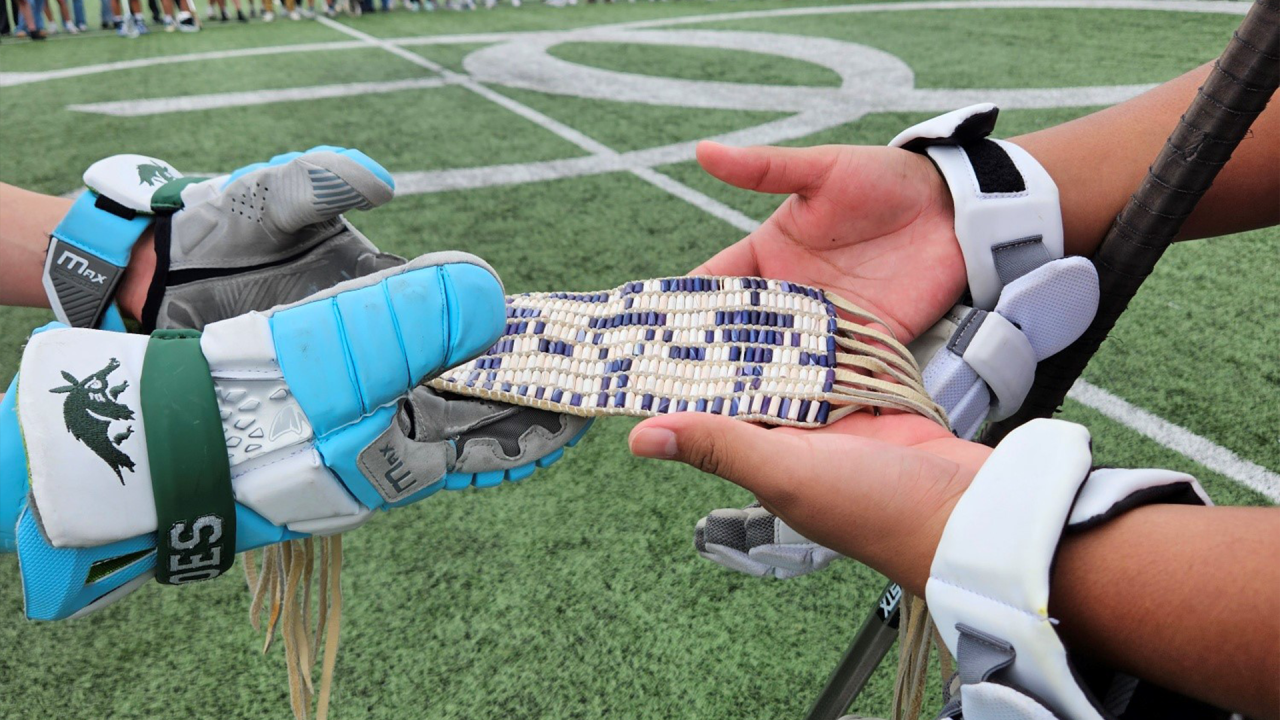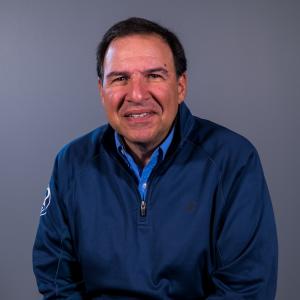
Why an Oregon Lacrosse Coach Takes Every Opportunity to Spread Roots of the Game
Four decades ago, as a senior on the lacrosse team at Unity College in Maine, Rick Roy made a promise to his coach.
“Never let me hear that someone asked you to teach them the game and you refused,” Wilson Hess instructed his graduating players. “If you do, I will haunt you.”
Roy has remained faithful to that pledge he made many years ago, and well after he had settled in the small community of Burns, Oregon, the opportunity presented itself. Roy was serving as the middle school football coach when he was approached by a local member of the Native community, Amos First Raised, and asked him to teach lacrosse to the local youth.
Roy, who is not Native, nevertheless decided that if he was going to do this, he was going to do it his way, and that included teaching the Native roots of the game.
“I wanted the boys and the members of the community to understand the origins of the game and what the game is supposed to be,” Roy said. “It’s the Medicine Game. So, we talk about how we should look at the game and how we should approach the game.”
Despite the fact that about half of his high school team is annually comprised of players from the local Burns Paiute tribe, Roy knew that few — if any — understood the game’s Native heritage. Roy is intentional in his integration of Native culture into his coaching philosophy.
One tradition that Roy employs before each home game is the passing of the Wampum Belt among the teams during pregame as a gesture of welcome and friendship. He calls it the pregame Thanksgiving ceremony.
“We are very focused on the spiritual side of the game and in promoting the history and origins of lacrosse,” said Roy, who also serves on USA Lacrosse’s Native American Advisory Council. “There is a lack of understanding within the contemporary lacrosse community about what lacrosse really is. It’s way more than wins and losses. So much understanding and appreciation of the true culture has been lost.”
Roy’s pregame passing of the belt ceremony, which includes players, coaches, game officials and fans, is designed to help everybody understand that they have a responsibility once the game starts. Everyone gathers in the middle of the field, and Roy shares briefly about what the game truly represents.
“You know, I’ve seen parents running up and down the sidelines screaming for a kid to break the leg of an opposing player,” he said. “When teams are coming to our field and aren’t familiar with us, I give the other coach a heads up that we do things differently. We’re still playing lacrosse, but we talk about responsibilities.”
He said everyone at the game has a part to play.
“Players have a responsibility, coaches have a responsibility, officials have a responsibility and the fans have a responsibility,” he said. “There are four parts to the game, and that’s what we teach and talk about at the start. And then we put it into practice.”
Roy points back to Amos First Raised, now deceased, as the inspiration of this approach.
“He helped to create this atmosphere and culture,” Roy said. “And when he asked me to teach the game, it wasn’t just the X’s and O’s. There’s a lot more to it. Amos asked me to do something, so I’m doing it. It’s not about me.”
In addition to the pregame ceremony, Roy is intentional about using lacrosse to teach life skills. His coaching incorporates lessons on leadership, responsibility, accountability, community involvement, serving others, dealing with mistakes, dealing with success, integrity and sportsmanship.
“We talk about that stuff and talk about how we try to use the game to heal, and it doesn’t matter if the kids are Native or not,” said Roy, who has three Native sons in his family.
Through the years, word of Roy’s unique perspective has circulated throughout the Oregon High School Lacrosse Association, to the point that opposing coaches now ask him to replicate the pregame ceremony when Burns is the visiting team. Roy is hesitant.
“I don’t want this to be performative,” he said. “But they ask because they’re trying to have their players see something different, and they’re trying to get their parents to see a different approach. There is something going on in Oregon, which I see for the better.”
Paul Ohanian
Paul Ohanian has worked at USA Lacrosse since 2006 and is currently the senior manager of program content. Prior to joining USA Lacrosse, he served as SID at a Division III school with a strong lacrosse tradition and learned to appreciate the commitment and passion that athletes at all levels bring to the game.

Categories
Tags
Related Articles




